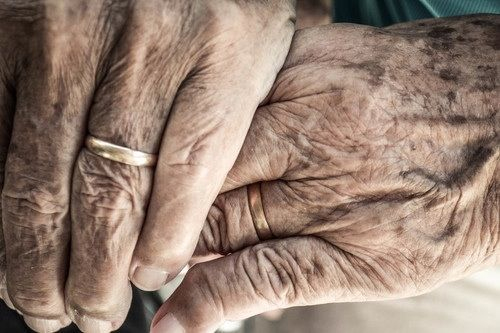Recently, Hospice Austin asked our staff to define what bravery means to them and to give an example of courageous behavior that they’ve witnessed over the past year either from themselves or from others – a patient, patient’s family member or colleague. This response is from Hospice Austin Nurse Molly Chudleigh.
What is your definition of bravery? What does being brave mean to you?
Bravery to me is standing up for what’s right when it’s hard to do. It’s choosing to do the right thing, over the popular thing. It’s a willingness to go at something alone or with others even in the face of uncertainty. Bravery is having the strength to be vulnerable.
Do you have a story or example of being brave this past year?
I see bravery in every family and patient that elects hospice care and chooses to help themselves or a loved one die with dignity. I see bravery in every patient who is aware that they are in their final days of life and embrace their family and friends and seek connection. I also witnessed bravery this year especially in all of the nurses in the beginning of the pandemic who fearlessly and unselfishly volunteered to take care of COVID-19 patients and all the sacrifices they were willing to make even if it meant becoming ill themselves.
Do you have a story or example of a patient or family being brave this past year?
I recently met a patient and his wife the ER because the patient was struggling at home with severe agitation, weakness, and having continuous falls. He had advanced dementia and was unaware of his physical limitations. The wife suffered a bad injury and had severe pain, but she stayed by her husband’s side even if it meant risking further injury to her or abuse from him. In the face of grieving the loss of her husband’s cognitive function (and awareness that he didn’t know who she was), she wanted to be there for him in every way possible because she knew in her heart that he would do that for her. She was so vulnerable and hurting, physically and emotionally, but she stayed by his side in the hospital. She was advocating for him, making difficult decisions for his safety, and navigating it all in spite of being physically injured and exhausted. She was so brave.
Do you have a story or example of one of your team members being brave?
Hospice social workers have a really tough job. They consistently have the most difficult conversations with families and patients. Caroline Gonzales does this over and over again in the hospital setting. There are a not a lot of great opportunities nor an ideal time and space in the hospital to have these types of conversations, not to mention just having to overcome the anxiety or fear of walking into a hospital during a pandemic. There are often many moving parts and a great deal of uncertainty of prognosis during the course of a hospitalization, and social workers like Caroline are very brave every time they enter conversations with families about directives and final arrangements. It’s the right thing to do, but it is the hardest thing to do, in my opinion.
What are your hopes and goals for 2021?
I hope to connect more with my team members and colleagues in 2021. I started working for Hospice Austin (again) just before the pandemic hit and really miss face-to face interactions and find being socially distant from everyone makes an already pretty autonomous job a little lonelier. I look forward to more opportunities to see whole faces and connect with the amazing staff and people of Hospice Austin.

Molly Chudleigh
Hospice Austin RN





